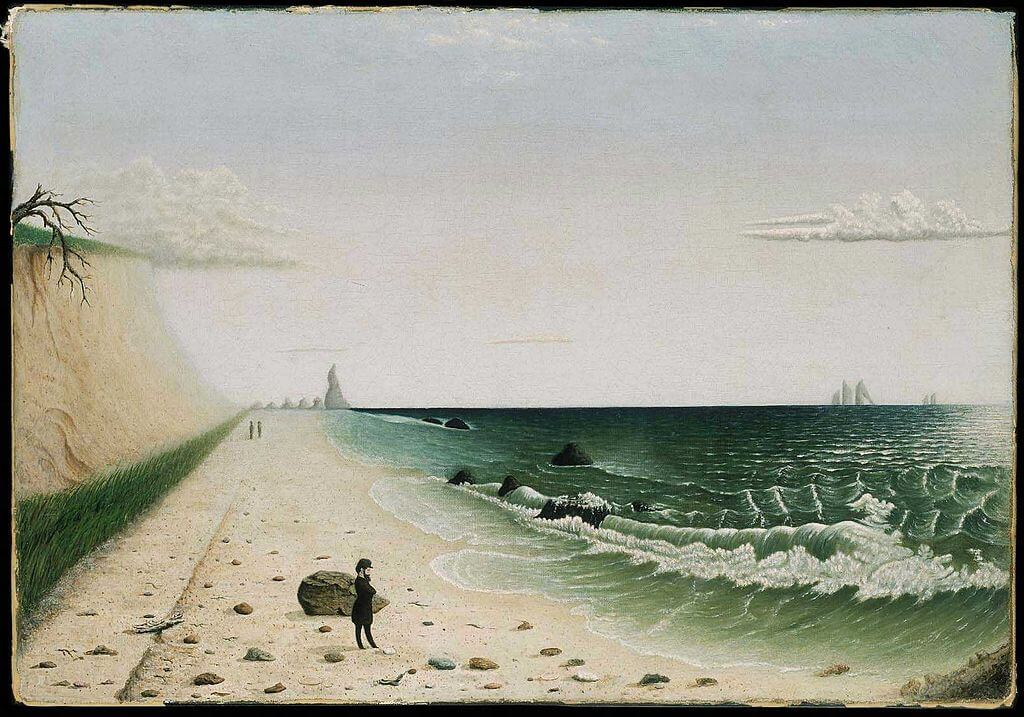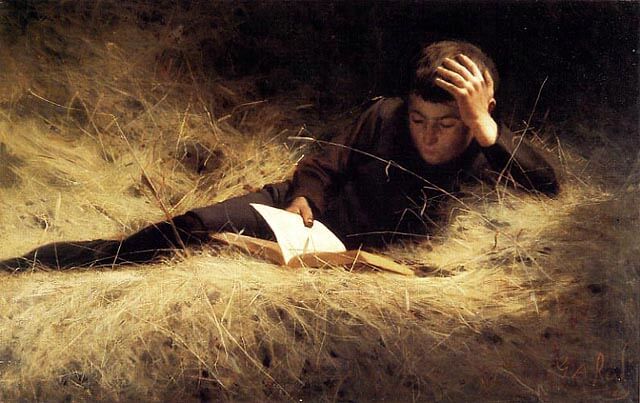Habits automate at least forty percent of our daily life1. Most of the things we do are habitual actions, not the outcome of conscious decisions.
All our daily habits — putting lime-grass in our tea, journaling, showering, exercising, driving, snacking during a movie, time blocking, scrolling social media before bed— were built day by day.
While growing up we were told to form good habits. Going to school meant standing under the shower first (I took a bucket bath though). Some other habits we started practicing so little by little we didn’t notice we were getting habitual. We picked up the phone to check Facebook, and before we knew it, we had scrolled our feed for thirty minutes.
Even though habits run so much of our lives, building new habits sound like a lot of work. The daily ongoings make us believe we cannot bring a change, at least not without monstrous efforts.
Sometimes my exercise routine breaks. And getting back to the same schedule seems hard as I want to work out for the usual one hour, and nothing less. My friend stopped meditating after a ten-day Vipassana course as she couldn’t take out the prescribed one hour to meditate. Another friend couldn’t journal as he started doing double shifts at the office. He said he needed at least thirty minutes to write, and he didn’t have that much time anymore.
We have already got enough fish on our plate. In the humdrum of living, who has two-three hours for personal flourishing or learning a new skill? And so we remain where we are craving the job we think we are made for or the body we could have had or the vacation that is still in our bookmarks.
But we don’t realize we don’t have to wait for an ideal one hour. Hoping for that perfect time slot is not only delaying us from getting to our goal but is also barricading our fun.
I can jog for fifteen minutes, and my friend can meditate for ten. The other friend can read or journal two-three times during the day whenever he gets a small break.
These ten-minute runs or meditation sessions may not seem as impactful as an hour-long practice. But we need to look at the aggregated calendar rather than at an individual day.
Ten minutes might not make my friend as mindful as an hour but this little block of time would help her develop a meditating habit3. A ten-minute jog would get me back onto my routine.
We can either keep doing these activities for the same duration or expand these habits to fill larger periods — whatever we do we still have these little habits working in our favor throughout. (Even on stormy days, we would be able to sleep peacefully.)
As you can see, a one percent consistent growth can make anything six times better in one-eighty days (1.01^180). But you need that one unit to start with. And do you know this same one percent increment can make anything thirty-seven times better (1.01^365) in a year?
From 1 to 6 to 37 — the power of compounding is a fact, not hope.
As Jeff Olsen2 said in his brilliant book The Slight Edge, “Anytime you see what looks like a breakthrough, it is always the end result of a long series of little things, done consistently over time. Hoping for “the big break”—the breakthrough, the magic bullet—is not only futile, it’s dangerous, because it keeps you from taking the actions you need to create the results you want.”
We have to start somewhere. And we can start small. So small that we find it very easy to do that thing. But the problem with this approach is we would also find it very easy to not do the thing.
- Getting up every hour to stretch our legs.
- Calling up a friend after work.
- Eating an apple or any other fruit every day
All of these above good little things are easy to do but easy not to do as well. As we cannot see instant results with these simple, daily habits, we might as well not do them.
Now it is up to us to be either amongst those who get things done or the ones who don’t.
And this guide on life habits comes into the picture right here for it makes doing the small good things easy.

“You supply the actions; the universe will supply the time. The trick is to choose the actions that, when multiplied by this universal amplifier, will yield the result you want. To position your everyday actions so time works for you, and not against you.”
Jeff Olsen
With the power of habits comes the great responsibility of choosing the best habits that work as a lever to improve our lives.
23 Easy and Small Habits To Build The Life We Imagine Ourselves Living
1. Acknowledge the presence of your loved one every morning – undervalued but one of the best habits to have
Earlier I used to jump out of the bed right after opening my eyes. But, with time, my partner has taught me to slow down. Now we first smile, hug, and appreciate each other’s presence. Later when I am up and about, I am full of hope for the day as I have spoken to my most important person and have the bigger picture clear in my mind.
[The immense emotional benefits of snuggling up to our loved ones have been laid down by the neuroscientist Lisa Feldman Barrett. I talk more about her research in my article on emotions and emotional understanding. You can find 46 other ideas on how to make someone happy in the linked guide.]
Plant a kiss on your beloved’s cheek. Or send a beautiful text to your father. (Only takes a few minutes)
Score: Easy to do, but easy not to do.
2. Make up your bed in the morning – One of the most undervalued good habits to have
After years of getting coaxed by my mother to fold my duvet and fluff up my pillows, I have come to a point when I can’t leave my bed without fixing it.
Making up the bed is a powerful habit that can start a chain reaction. A clear and organized bed may incline one towards organizing other things around them. Even on a not-so-good day, a well-ordered room or a desktop could give the feeling of being in control which would lead to a better mood and a happier life.
Straightening up the bed every morning has been correlated with better productivity and a greater sense of well-being. And such habits that encourage other good behaviors and overflow in all parts of life are called Keystone habits. You can read more about them in my piece on working from home effectively.
Make your bed. (Takes 5 minutes)
Score: Easy to do, but easy not to do.

3. Exercise for fifteen minutes. Or walk.
I have been doing yoga, exercising, and running regularly for many years now. Some days, I just walk. While the immediate effect of physical activity is a better mood, the long-term impacts of exercise have been a fit body, healthy mind, and higher self-confidence. I also exercise in between intense writing or work sessions to rejuvenate and restart myself.
(I learned a lot about exercising to revitalize the mind in the book The Art of Learning by Josh Waitzkin. I have two inspirations from this book: mastering the art of learning and why the process is as important as the result.)
Apart from keeping us physically healthy, exercise reduces stress and improves our state of mind by bringing our focus back to our bodies.
But rather than quoting all the scientific benefits of moving, I want to emphasize our human nature and that we were not made to sit or lie down all the time. Our body needs to move as much as it needs to eat.
Don’t wait for the perfect hour of the day. If stretching feels overrated, go for a run. Do push-ups. Walk around the house, go to a park, or discover streets you hadn’t seen before.
Start by exercising for fifteen to twenty minutes. For if you push yourself harder, you might dread exercising the next day and quit altogether.
Score: Easy to do, but easy not to do.
4. Sit silently and calm yourself for five minutes. Or two minutes. – One of the easiest habits to change your life
Even though a wandering mind is an unhappy mind, research shows that 47 percent of the time people are thinking about something other than what they are working on. But what has meditation got to do with focus? It is proven that long-term meditators can bring back their focus much more easily than non-meditators.
I did a ten-day Vipassana meditation course a couple of years ago, and I came out completely cleansed and calm. While I struggle to find a whole hour to meditate (as recommended), I sit for ten to twenty minutes of meditation. Or I meditate while walking, cooking, or cleaning the dishes. Not only do I rise out of the quiet sittings more grounded in my body than in my mind, but later I find it easier to stop a thought and return to the thing at hand.
Give yourself two minutes of quietness. Meditate. Focus on your breath. Meditation doesn’t mean you don’t think about anything else. But that you acknowledge whenever your thoughts wander and refocus on your breath every time (or whatever your meditation practice has asked you to focus on). (Takes five-ten minutes)
A few minutes of meditation every day would help you become more mindful and thus happier.
Score: Easy to do, but easy not to do as well.

5. Pick up the most important task of the day first
The first thing I do in my day is writing. When I have taken care of the thing that makes the most difference, I move on to other things, work-related tasks, and chores.
If I can’t resist the temptation to read first or watch a funny video or do administrative chores, I feel gloomy. Because I still haven’t written and I will have to make up for the lost time. Mostly that moment of creating a new document to write or opening an old draft to edit sets the tone for the day. And it doesn’t take me more than a few seconds to get this simple habit going.
What is the most important job of your day? Get to it first. (Takes a few minutes of willpower every day. But only until you develop the habit.) – This is one of the most recommended practice for a creative living.
Score: Easy to do, but easy to ignore me and not to do.
6. Set four recurring alarms at three-hour intervals. Label them “fill the water bottle.“
I have been drinking about four liters of water every day for eight years. I always stay hydrated and energetic.
Though research shows water enhances our cognitive abilities and moods, we shouldn’t need anyone to tell us we need at least a few liters of water daily. By having a lot of water we also ensure getting up often (to take it out) and walking around: again a good habit to have. Did you know the harmful effects of long sittings can be countered by getting up and moving around often?
Please get a water bottle (one-time activity). Now put on those alarms. When each alarm goes off, you fill your flask. But filling it implies you first empty it. Though you might throw the first few liters, soon you would remember to drink up.
Setting the alarm and filling the bottle doesn’t take more than ten minutes in total.
Score: Easy to do, but easy to ignore me and not to do.
Get an alarm clock. (one-time activity)
7. Set a wake-up alarm on your alarm clock and disable the one on your phone – Not just another good habit but a crucial one.
The alarm rings. We fling our arms to find the disturbance. We snooze the alarm once. The next time the alarm rings, we switch off the alarm. But we don’t leave the phone.
Oh, Manika was in Dubai yesterday. John got married. That unknown cat looks cuter today. That Panda hasn’t stopped chewing on the bamboo. Boom. Baam. Boom. Baam. Too late.
Social media usage has proven to be directly connected to how depressed we feel. Before looking at what others have been doing, first, we need to get a grip on our day.
I don’t use an alarm clock because I don’t pay attention to my phone. But if you are getting distracted by your phone, wake up with an alarm clock. (Takes a minute to set an alarm)
Score: Easy to do, but easy not to do.
Suggested Read: Is social media keeping us sedated?
8. Switch off the notifications for the most disturbing apps.
If you still can’t resist checking the notifications later, disable the push notifications of the most disturbing apps in Settings. (Takes five minutes.)
Score: Easy to do, but easy not to do.
9. Appreciate yourself for the things you have done so far.
You are already a master of your day. Look at yourself in the mirror and smile. Say thank you.
Small wins like starting a day on the right note and taking care of yourself would convince you that bigger results are close by. (more on morning trigger routine in how to set a schedule piece.)
Thank yourself. (Takes only a couple of minutes.)
Score: Easy to do, but easy not to do.
10. Have negative thoughts? Write down your feelings or fix a time with someone to talk about them.
An unresolved problem or an emotional upheaval can cloud our heads, upset us, and take our attention away from important things. Even good days can feel like bad ones.
I used to let the disagreements with my roommates hang in the background while failing to write. One day I texted my friend I would talk to him about those issues at night. A simple reply from him that said “don’t worry we will discuss” stopped me from thinking about the problem, and I could focus again.
Fix a time to talk to a friend (or a therapist). Journal or record an audio message and send it to yourself. But if you still can’t get it out of your head, do something about the issue now.
Score: The problem may need time to be fixed. But figuring out how you will go about resolving it and whom will you ask for help takes a little time while putting you at ease. So easy to do, but easy not to do.

11. Avoid phone calls in the first half of the day – one of the best daily habits to change your life
In a podcast, Gloria Mark, who is known for her research on digital distraction, said on average humans lose the focus from their computer screens every forty seconds and take about twenty-five minutes to get back to a task after getting distracted.
When bringing back our focus isn’t that easy, we should choose the things for which we want to break our attention carefully. But more than losing or gaining focus, I don’t pick up calls during the first hours of the day as that time is very special to me. I get ready, eat, work on my most beloved projects, write, and get into my day. I don’t entertain outside noise during that time as I don’t know who will reach out to me on what day disturbing which particular mindset. One day I may have a great conversation with a friend but another day someone else could talk to me about things that could have waited until later.
If you also want the beautiful morning time all to your most important things, tell your contacts you won’t be available on the phone in the morning. Keep it in the other room or switch it off. Return important calls later in the day. (saves a lot of time and frustration)
Score: Easy to not pick up the phone, but easy just to pick it up, too.
And if you are bored with work and using phone as an excuse, read why it is not natural for work to be boring and why we should work even when we don’t feel like.

12. Immersing in nature – an essential part of life
I grew up in a very open garden home. Perhaps that’s why I need my share of windows, views, and trees. I need the soil under my feet. When I walk barefoot on the earth, I feel connected to life. Hours of isolation melt away with one hour in the forest, mountains, or the beach.
No one should have to prove that nature uplifts us. We were born in it. We are part of it and it is part of us. So even if you can’t do anything else on this list of good habits, do take out some time to hear, see, and breathe in the many rhythms of life thriving around us.
Getting out for walks in the green or laying down on the sand near the ocean is easy for those who either live in the countryside or near the water. And city dwellers can always make their corner a green one. Hang some plants on your balcony. Put a bird nest. Place a water bowl. Wander into the city parks, if only for ten minutes.
Once you start observing the birds splashing in the bowl or the spider nesting in your window, you won’t be able to live without them. Now and then you would forget about your life and wonder why the birds haven’t finished the grains today or where did the frog in the bathroom go. And that’s how it was supposed to be.
Score: Any little time you give to nature is good enough. Easy to do, but easy not to do.
13. Finish your day by writing down the priorities for the next day.
Humans love control4. Having a sense of tomorrow calms us.
The day I don’t have the most important thing written down in front of me, I end up spending an hour trying to figure out what I have to do. But when I know what is to be done, I get straight to the work.
Write down your to-do list for tomorrow today. (takes about 10 minutes)
Score: Easy to do, but easy not to do.

14. Play some nice music while going home.
Many times I am too lazy to find some nice music. But as soon as I get my hands on a suitable playlist and start listening to it, I feel all happy and cheerful.
Apart from doing some hundred thousand favors, music makes us happier and more positive.
Either while driving to and fro from work or while cooking, get some music going. You will find yourself more relaxed and happier. (Takes a couple of minutes to play music.)
Score: Easy to do, but easy not to do.
15. Throw away an expired product or clean up a box
My partner’s email inbox is as clean and organized as the teeth in our mouth. Email received. Email marked read, deleted, or labeled.
When we clean up our environment, we clean up our minds. While making dinner or in your free time, throw away one item you no longer need or is expired. If everything is already out, pick up one item to clean.
Then see how you feel. [Take about 5 minutes]
Score: Easy to do, but easy not to do.
16. Shift your dinner time every week by ten minutes to create a gap of at least one or two hours between your eating time and sleeping time.
We need to eat at least two hours before we hit the bed. Else our stomach would still be digesting food when we get to bed and we won’t have a restful night.
But how many times do we eat dinner two hours before going to sleep?
In India, families eat heavy dinner that is full of chapati, curry, salad, fruits, and sometimes even rice. When I went to South America, my Chilean host mother introduced me to the concept of once, a lighter meal that Chileans (and other South Americans) eat by 7-8 pm. It has bread, cheese, salad, leftovers, eggs, tea, etc.
Since traveling to Chile, I have not had a heavy, late-night dinner except on some occasions, festivals, or rare weekends. By the time I get to bed, I feel light and ready to doze off.
Change your dinner time slowly by eating ten-fifteen minutes earlier every time.
Score: Easy to do, but easy not to do.
Let’s pause here for a bit.
Some of these habits may sound too methodical. Putting an alarm to drink water or shifting dinner time little by little. If I tell my mother, she would say what do you need an alarm to drink water for? And she is right. We are mechanizing even the most natural needs.
But often I have seen us forget the most obvious things. My partner — busy with calls and codes — forgets to hydrate himself. The water alarm reminded him to reach out to that water bottle. Even my mother needs to be reminded she has to continue her yoga exercises. I, myself, need to be told often to be kind to myself.
Though some of these methods may seem city-friendly or attachments that come with modern living, they are simple enough at their core. Waking up with sunlight, eating and drinking well, resting well, working with focus, staying connected with our people, and thanking those around us and ourselves — these are the ideas here. Even people living in rural settings need their hens and chickens to wake them up. We shouldn’t be ashamed to put alarms as they are only to get us started until the habit takes over. And when we get used to doing the thing, we can disable the reminder.
Let’s go on.
17. Shift your alarm time by fifteen minutes every week. Shift by ten minutes if you can’t do fifteen.
I failed to wake up with the 6 am alarm. So I brought incremental changes of 10-15 minutes in my wake-up time. So for the first week, 8 am, then 7:50 am, 7:40, and you see where I’m going with this.
When we wake up earlier, our sleep time may shift naturally. But research also shows that shifting our sleeping patterns might not help in improving our mood or give us a sense of better well-being – If you are an owl, you are an owl.
Shift your alarm time by 10-15 minutes. (takes a minute)
Score: Easy to do, but easy not to do.
18. Keep the phone aside an hour before you sleep (if you don’t already).
Most of us feel anxious after using social media apps. Seeing others’ feeds right before sleeping disturbs our sleep and affects our overall well-being even the next day.
Keep your phone aside ten minutes before you sleep, then increase this time to fifteen minutes, then twenty minutes. [saves time]
Score: Easy to do, but easy not to do.

Instead, do this before sleeping.
19. Read a book – Just ten pages a day. Or start with five. (one of the best habit in life)
I cannot fall asleep without reading a few pages. My partner reads technical articles.
Apart from the immense knowledge we gain while reading, reading relaxes us immensely. Do you know how much you would read in a year if you go through ten pages a day? 3650 pages. That is a dozen books of three-hundred pages.
Read ten pages before you sleep. Who knows which books might change your life. [Takes anywhere from twenty to thirty minutes]
Score: Easy to do, but easy not to do.
20. Catch up with a friend
Busy in writing and setting up my blog, I had gone too far from my friends. But I soon started missing them a lot and slowly connected with all of them.
We need our friends to share our life’s sorrows and joys with. Otherwise, we will end up alone.
We don’t have to talk to a friend every day but the idea is to stay connected with them so that the communication goes on. [Time spent depends on you.]
Score: Easy to do, but easy not to do.

21. Cook something for yourself and your loved ones
Many of us cook all day but some don’t get time to get into the kitchen at all. Not in the villages but at least in cities food is only a few clicks away. But no matter what we tell ourselves no food item bought from outside can match the quality and nutrition of what we can put together at home.
If you are at a point in life when you would rather spend time working and compromise on health by ordering food or by letting your loved ones make it, still consider taking out ten-fifteen minutes. You can either cut some fruits or make mango shake or just whip up a sandwich. Whatever is the easiest for you. Even a little bit of homely goodness daily can amount to a lot over time. And the daily habit of making a little food every afternoon or evening will spill over into the need to cook larger meals. You will see.
Score: Easy to do, but easy to forget, too.
22. Checking ourselves on our behaviors
Was I harsh again or did I postpone writing to read? Self-checks could be as simple as these. I got this inspiration from Benjamin Franklin and even though I don’t track my behavior in a diary as he did I have an idea of how I am progressing on the standards I had set for myself.
Do you overeat at lunch every day or are you rude to your colleague or raise your voice at the slightest difficulty or have the habit of mulling the same thing over and over in your head? If you think you have a vice you have to improve upon, you are already on the path to personal improvement. Now consciously or unconsciously you will be working upon it.
The end of each day is a great time to sit and contemplate how you did on a particular dimension that day. It doesn’t take more than a few minutes to either make a mental note of your progress or write it down.
Score: Easy to do, but easy to forget, too.
23. Thank yourself again and forgive yourself before going to sleep
The most important person you should thank for the day is you. Without you, how would you have managed anything? I also realized I am pretty hard on myself so I am getting into the habit of forgiving myself whenever I feel I didn’t do my best. We are all humans, after all. – and other important things I have learned so far.
Thank yourself and forgive yourself at the end of the day. [two minutes or, well, take your time.]
Score: Easy to do, but easy to forget, too.
Must Read: Let’s revisit the basic principles of life

Gary Keller writes in The One Thing, “It’s not that we have too little time to do all the things we need to do, it’s that we feel the need to do too many things in the time we have.”
Start with only five of these good daily habits to improve life. Then choose the next five. Later select the next five. Give yourself six months. Or a year. At the end of the period, you will have all these everyday habits working for you.
You don’t have to increment these habits until you feel ready. Also do not increment the duration of more than one habit at a time. Let them be small.
By doing these tiny activities every day, you will be happy because you are taking care of the small and big things in your life, even if little by little. You may not have noticed but the list took care of your health, happiness, relationships, personal development, career, clearing the mundane for creative living, and purpose.
What if you are having a bad day and don’t want to do anything? These actions would soon become habits. On a bad day, too, these positive habits will help you move on and feel better about your day.
One more important thing.
If you close this article with five good thoughts, I am happy. But as we don’t see immediate results by doing tiny things, we forget them. In a few days, you might not remember even one of the habits from above. And that’s when you will have to believe in what you know rather than what you see.
Something done regularly adds up to bring amazing results over time. Just remember this.
As Charles Duhigg said in The Power of Habit, “If you identify the cues and rewards, you can change the routine. At least, most of the time. For some habits, however, there’s one other ingredient that’s necessary: belief.”
You will have to believe. Work. Observe the change. Even if you don’t see a change immediately, work. You can also work with an accountability partner to stay motivated.
We often think that to have that picture-perfect life we need to win a lottery, pray real hard, or get better luck. But mostly we need small habits of life accumulated over the years that will shift our entire life.
If we keep our head down and do our thing, soon enough, the universal amplifier — the magical time — takes over and rolls us right into our goals.
Which one of the above daily good habits to change your life you find the most practical? What can you start today? Tell me in comments.
References
1 – A paper published by a Duke University researcher in 2006 found that more than 40 percent of the actions people performed each day weren’t actual decisions, but habits. As quoted by Charles Duhigg in The Power of Habit: Why We Do What We Do in Life and Business. [back]
2 – Many thanks to Jeff Olson for his book The Slight Edge: Turning Simple Disciplines into Massive Success and Happiness. This book taught me a lot about the importance of practicing good habits for life even on a small scale and inspired many ideas in this article.[back]
3 – Research says that a habit takes almost 66 days to form but this is not a definite number for all kinds of habits and all kinds of people.[back]
4- You can find many references to human love for control in the book The Power of Habit.[back]
*****
My much-awaited travel memoir
Journeys Beyond and Within…
is here!
In my usual self-deprecating, vivid narrative style (that you love so much, ahem), I have put out my most unusual and challenging adventures. Embarrassingly honest, witty, and introspective, the book will entertain you if not also inspire you to travel, rediscover home, and leap over the boundaries.
Grab your copy now!
Ebook, paperback, and hardcase available on Amazon worldwide. Make some ice tea and get reading 🙂
*****
*****
Want similar inspiration and ideas in your inbox? Subscribe to my free weekly newsletter "Looking Inwards"!



Loving your work! Please don’t stop. Thank you.
Thank you for this article. My work and my life has been so tiring especially at work. I just feel numb. But reading this article made me feel so excited especially the part of appreciating myself and thanking myself. Thank you for this. I will use them to start over again with my own personal goals. I thank God for this article.
Hope you have been able to align some of these habits with your goals. Let me know how’s it going 🙂
Superb blog!
Thank you 🙂
I am lucky that I read it. Thanks, Onmycanvas for the awesome article.
Some really obvious ideas here – except they weren’t obvious to me until you pointed them out! The obvious can be right under your nose without even seeing it. My favorite is Number 1, to say something nice to my loved one when I wake up. It’s a great feeling to do something nice for someone else. The one I might struggle with is number 23, to thank myself before going to sleep. That will be a hard habit for me to adopt, but now you have shown it, I will certainly try. Thank you for your thoughts Priyanka.
Thank you so much for stopping by, Mike. How are the habits coming along?
Grt piece! Gonna put at least 6 into practice this month!
-christine
Good luck to you, Christine. How has it been going?
The article was wholesome 🙂 and inspiring
Thanks for this article, Malati
Hey, the article was very well written and was quite enriching.
I would just like to suggest one thing though. The points were a bit difficult to make out from the rest of the writing because there was no use of bold or italics any where. I feel if you would have used bold for the points, it would have been much easy to read.
Thanks for reading and your advice, Shashwat. I’m glad the piece was helpful. I’ve just made the headings bold. Hope it is much more readable now. Thanks a lot for letting me know.
Very informative and interesting article. I also believe in forming good habits.
Your in depth pist is a huge inspiration.
Thank you and rewards.
Thanks you, Malati 🙂